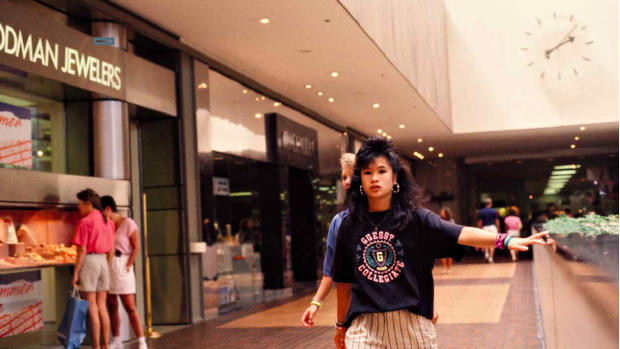Plunging mall traffic is killing some restaurants and stores
Shopping malls are slowly turning into ghost towns, and that's taking a toll on the stores and restaurants inside of them.
Nowhere is this more apparent than in the mall food court. Several fast-food chains that were once a primary source of sustenance for bored teens are crumbling, unable to stay in business as shoppers spend their money elsewhere.
The latest victim is Sbarro, the pizza and pasta chain that was a staple at mall food courts. The company could file for Chapter 11 bankruptcy protection as early as next week, The Wall Street Journal reported late Wednesday, citing sources familiar with the matter.
In mid-February, the company announced it would be closing 155 of its 400 North American stores, most of which are located in malls and airports. The company is buckling under $140 million in debt.
The company "signed some very expensive leases during the booming economy of the mid-2000s," said chief executive Dan Smith, according to The San Diego Union-Tribune. "Most of these leases were written for 10 years, and those that are really hurting us were written at the top of the market, 2004-2007, and they're really hurting us. The world has changed, and to be stuck paying the same rates has been painful."
Mall retailers are also hurting. Wet Seal (WTSL) reported dismal earnings last month, with net sales for the fourth quarter down nearly 23 percent from a year earlier. Chief executive John Goodman cited "ongoing softness in mall traffic" as one reason for the decline. Shares have plunged 28 percent from the start of the year.
Real estate analytics company Green Street Advisors says that some 15 percent of U.S. malls will fail or convert to non-retail space over the next decade, Business Insider reports. Another retail expert, Howard Davidowitz, thinks up to half of U.S. malls will fail within 15 to 20 years.
One of the biggest reasons for the closures and slowed traffic is the disappearance of anchor department stores such as Sears and J.C. Penney. Those stores have been in tumult since the recession, and haven't returned to health the way some upscale retailers have. Historically, they drove traffic to the malls. Some malls are now looking at large gyms and fitness centers to replace department stores as mall anchors, The Washington Post reports.
Other malls are adding ferris wheels, hair salons and specialty restaurants to offer more of an experience for the whole family.
Upscale shopping centers that cater to the wealthy have weathered the economic downturn better. Outlet malls have also rebounded, and are one of the bright spots now in American retail.
But many other malls are in the same predicament as Global Mall at the Crossings, an Antioch, Tenn. shopping center that can only count 20 percent of its 200 storefronts as occupied, The Tennessean reports. Experts say the solution is to do away with the retail stores that were once the backbone of the shopping mall, and replace them with offices, grocery stores and schools.
"The problem is when people come to that mall, they think about what it used to be," one former store owner told The Tennessean. "And when they walk around and see the empty spaces, there's no reason for them to come back."
